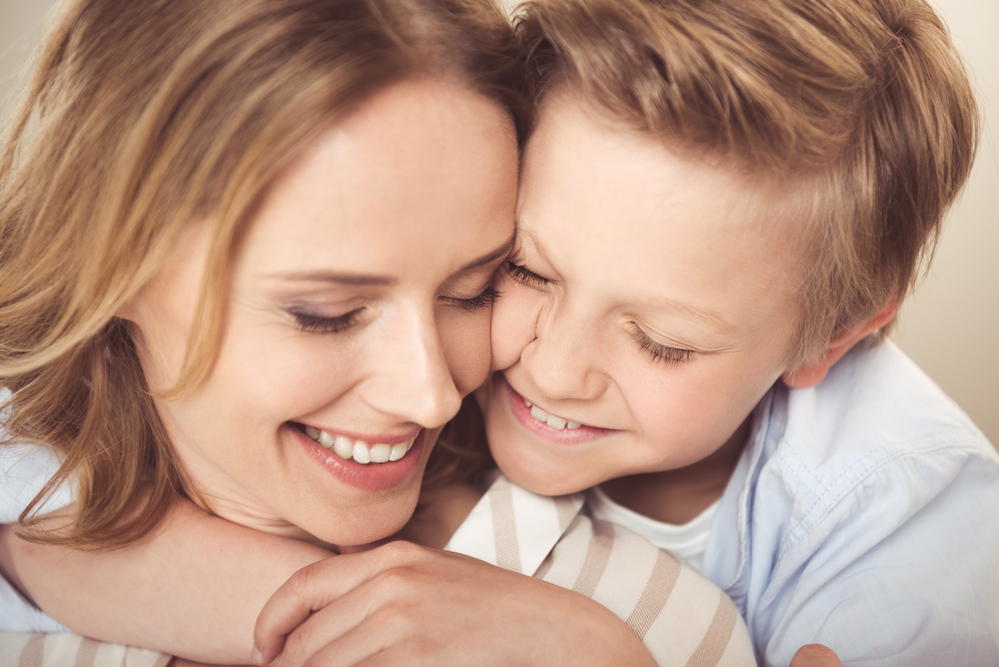It was 4:30 in the afternoon, and I’d taken Mitchell shopping after school. Both he and I were tired, but I knew I needed to pick something up from the store before they closed at 5. I was in a rush, and he’d stopped to look at a toy he wanted me to buy. I explained that we weren’t toy shopping today and that he needed to hurry up as the store was closing soon. This started a tantrum that lasted for a good 10 minutes – there were tears and snot all over his face as well as him telling me that I just didn’t care about him and how I was the worst person in the world. He completely lost it in a meltdown of epic proportions. I was embarrassed by the scene he was making and struggled to calm him down. Everything I said seemed to make matters worse, and with us both being tired, only added fuel to an already raging fire. I admit that I wasn’t using the best strategies to deal with the situation at the time, which eventually led to both of us losing our tempers. It was far from my finest moment, and as I was driving home, I knew I hadn’t been a good role model of self-regulation at all, I apologised to Mitchell for getting angry and using an unkind voice. I wanted to make sure our shopping trips never resembled a scene from a Mad Max movie again and recognised that I needed to model healthy ways of handling my negative emotions even when I was tired.
We all experience anger, fear, frustration, sadness, rejection, disappointment, jealousy, and guilt at different times; they are simply part of being human.
Mentally fit people can label their emotions and manage their emotional reactions to external events and strong feelings without yelling, throwing things, or damaging property.
They can express a broad range of emotions and don’t get ‘stuck’ in any one particular emotion for great lengths of time. While they might feel angry, frustrated, sad, anxious, or scared, these feelings don’t prevent them from managing the situation as they have developed emotional agility.
After working with thousands of families, I came to realise that as adults, we frequently underestimate our kid’s ability to process and understand complex emotions. We think they’re less capable and try to protect them from the unpleasant, thornier subjects and don’t bring these up or discuss them.
As soon as they begin talking, we can teach our kids how to identify and talk about their feelings. If we create safe environments where children can openly talk about their feelings and trust that they will be listened to and not judged, most kids will talk freely about their feelings. Children can hold mature conversations about their emotions if we explicitly teach them the skills and language they need.
Children and young people with strong social and emotional skills, sometimes referred to as Emotional Intelligence, or EQ for short, stay in school longer, get better grades, make more healthy choices than their peers who have lower levels of EQ, and are less likely to end up in jail. By teaching our kids how to recognise their feelings, understand where they come from and how to deal with them, we are providing them with some of the most crucial skills for happiness and success throughout their lives. As children grow, they learn different social and emotional skills at different rates —there is no one linear model to summarize how emotional intelligence should look in children of different ages. Daniel Goleman has identified five components of emotional intelligence: self-awareness, self-regulation, empathy, social skills, and motivation.
Self-awareness is the ability to identify and understand your own emotions. To become self-aware, it is essential that children can observe, recognise and name their emotions, notice different emotional reactions they have, and then understand the relationship between the things they are feeling and the ways they behave.
Self-regulation enables us to regulate and manage how we react to our emotions. This does not mean that we expect children to hide their true feelings or not express their emotions. What we need to help them understand is that there is a right time, place, and appropriate way to express their emotions and impulses so they can stay in control and not physically or verbally lash out at others.
Empathy is our ability to understand how other people are feeling. It requires us to recognise other people’s emotions and then respond to them in appropriate ways based on this information. For example, when your child recognises that their friend is feeling sad, this influences how they respond to that person, and they may choose to do something that cheers them up or helps them feel better.
Social skills support our children’s ability to interact well with others and manage their social relationships. When children understand their own emotions, as well as the feelings of others, they can then apply this information when they are communicating and interacting with other people. This helps them build and manage relationships and connections with people they encounter every day.
All emotions serve a useful purpose in our lives, both positive and negative. Our emotions are simply data telling us something about the experiences we are currently having. They are signs that something is right or wrong in our world and help us communicate that to others around us. Children need to experience the kaleidoscope of human emotions in order to develop emotional wellbeing and resilience.
The primary pathways in the brain that enable us to recognise, understand and manage our emotions are formed in early childhood. These are substantially impacted by parent-child interactions and children’s observations of the ways their parents manage their emotions and regulate their behaviour. As parents, we need to nurture our children’s positive emotions on a daily basis so that we are creating a positive balance of emotions in their lives.
We need to explicitly teach our kids the skills of emotional intelligence – how to recognise their feelings, understand where they come from, and how to deal with them. This will help them regulate their behaviour, develop emotional agility and navigate social complexities.
To view on YouTube:
You may also like to read:









